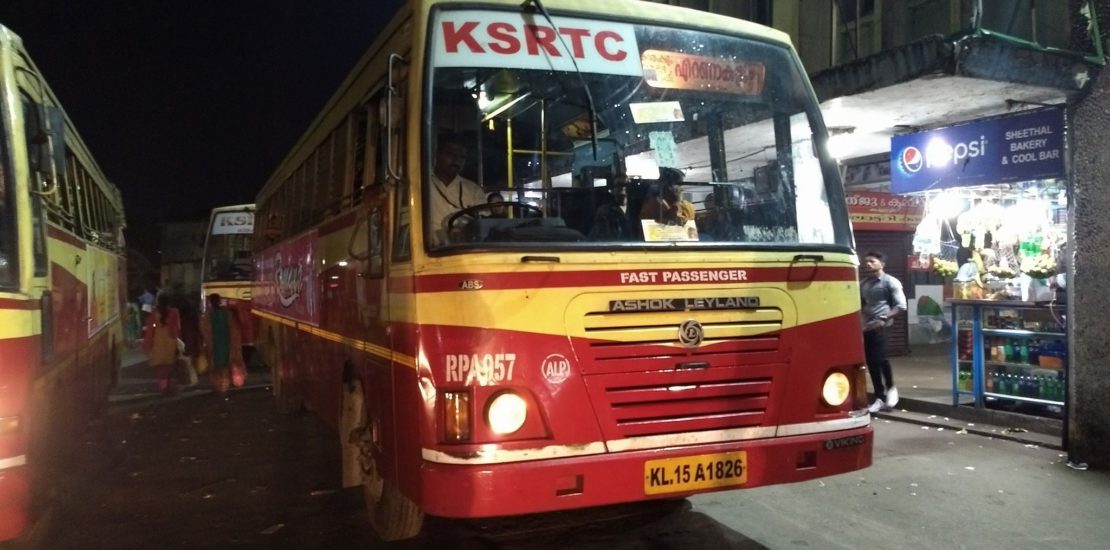- September 1, 2021
- Posted by: Maestro Legal
- Categories:

ANALYSIS OF COURT’S DECISION.
The Hon’ble Supreme court has settled some pertinent questions of law like applicability of limitations act, the right to file counter claims and plead set offs in arbitral proceedings under the MSMED Act. This judgment of the apex court is very important as it dilutes the statutory protection available to the MSMEs. The court holds that for the benefits under the provision of MSMED Act to be availed, the seller must be registered while entering into a contract and supply of materials should be subsequent to the registration.
The author here, with due respect, critically analyzes the judgment of the Hon’ble Supreme Court.
The court clubbed two different appeals which involved similar legal issues and addressed it by the way of a single judgment.
Civil Appeal Nos. 1570-1578 of 2021
The Kerala State Road Transport Corporation (Buyer/Respondent 1) invited tenders for supply of materials for tyre rebuilding. Silpi Industries (Seller/Appellant 1) was given the tender. It was decided that 90% of the total amount payable was to be paid upon the supply of the material and rest 10% subject to the quality of the material. When such 10% of the total amount was unpaid, seller approached the Industrial Facilitation Council for conciliation, which failed. The matter was then referred for Arbitration under the provisions of Arbitration and Conciliation Act 1996 (the Act) in accordance with the section 18(3) of MSMED Act.
The award was passed in favor of the seller, which was later set aside (appealed under section 37 of the Act) by the High Court of Kerala. While setting aside the awards, the court ruled that the Limitation Act is applicable as per the Act,arisingout of the MSMED Act. The court said that the counter claim is also maintainable is such proceedings. The court also noted that since there is an arbitration agreement present between the parties, the application filed by the Respondent under section 11(6) of the 1996 Act was allowed. Appellant was aggrieved by this decision and approached the Supreme Court. The court remanded the matter to the arbitrator for disposal de novo.
Civil Appeal Nos. 1620-1622 of 2021
M/s Khyaati Engineering (“Appellant II/Seller”) entered into a contract with Prodigy Hydro Power Pvt. Ltd. (“Respondent II/Buyer”) for supply and installation of hydro-mechanical equipment. Seller claimed that they have fully executed their part of the contract, but the buyer has refused to make payments. Seller filed a claim petition before the Industrial Facilitation Council. Respondent invoked the arbitration clause in their agreement. Appellant II failed to appoint their arbitrator, Respondent II filed an application under Section 11(6) of the 1996 Act before the Madras High Court.
The appellant opposed this claim contending that proceedings were already initiated before the facilitation council, to which respondent II claimed that the council was primarily meant for the claims of the supplier and did not have judicature over the counterclaims of the buyer. The High court appointed the arbitrator, allowing the respondent’s application.
Aggrieved, the appellant II filed a claim before the Supreme Court challenging the order passed by Madras High Court.
Issues before the Supreme Court:
The paragraph no. 13 of the judgment states the issues before the Supreme Court for consideration-
(i) Whether the provisions of Indian Limitation Act, 1963 is applicable to arbitration proceedings initiated under Section 18(3) of Micro, Small and Medium Enterprises Development Act, 2006? And
(ii) Whether, counter claim is maintainable in such arbitration proceedings?
SUPREME COURT’S JUDGMENT:
The Supreme Court dismissed the present appeal and observed that;
(i) The Limitation Act is applicable to the arbitration proceedings under MSMED Act.
“A reading of Section 43 itself makes it clear that the Limitation Act, 1963 shall apply to the arbitrations, as it applies to proceedings in court. When the settlement with regard to a dispute between the parties is not arrived as under Section 18 of the 2006 Act, necessarily, the Micro and Small Enterprises Facilitation Council shall take up the dispute for arbitration under Section 18(3) of the 2006 Act or it may refer to institution or centre to provide alternate dispute resolution services and provisions of Arbitration and Conciliation Act 1996 are made applicable as if there was an agreement between the parties under sub-section (1) of Section 7 of the 1996 Act.
In view of the express provision applying the provisions of the Limitation Act, 1963 to arbitrations as per Section 43 of the Arbitration and Conciliation Act, 1996.”
(ii) Counter claims are maintainable even in arbitration proceedings initiated under section 18(3) of the MSMED Act.
The Supreme Court held that counterclaims are maintainable in arbitration proceedings under section 18(3) of the MSMED Act. Also, section 23(2A) of the Arbitration act provides for the filing of counterclaims, hence Supreme Court held that it would also apply to the arbitration proceedings under the MSMED Act.
“When there is a provision for filing counter-claim and set-off which is expressly inserted in Section 23 of the 1996 Act, there is no reason for curtailing the right of the respondent for making counter-claim or set-off in proceedings before the Facilitation Council.”
The Supreme Court also observed that if it does not allows the buyer to file counter claims; this will lead to multiple proceedings and conflicting opinions in various forums.
(iii) Requirement of registration by the seller on the date of supply of goods and services
Silpi Industries was denied relief because it was not registered under section 8 of the MSMED Act on the date of supply of goods and services. Silpi Industries had approached the District Industrial Centre for grant of entrepreneur memorandum almost a year later from the date of supplies.
It was concluded that since Silpi Industries was unregistered on the relevant period, they do not have the right to invoke the provisions of the MSMED Act.
“In our view, to seek the benefit of provisions under MSMED Act, the seller should have registered under the provisions of the Act, as on the date of entering into the contract. In any event, for the supplies pursuant to the contract made before the registration of the unit under provisions of the MSMED Act, no benefit can be sought by such entity, as contemplated under MSMED Act…. If any registration is obtained, same will be prospective and applies for supply of goods and services subsequent to registration but cannot operate retrospectively. Any other interpretation of the provision would lead to absurdity and confer unwarranted benefit in favor of a party not intended by legislation.”
Analysis of the decision.
1. The judgment settles the issue concerning the applicability of the Limitation Act and maintainability of the counter-claim in the arbitration proceedings arising out of the MSMED Act. But, it raises an important question. Whether the 1996 Act will be entirely applicable or only those provisions will be applicable which are not in contravention of the provisions of the MSMED Act?
For example, section 18(5) of the MSMED Act, 2016 states that any reference with respect to section 18 shall be decided within a period of 90 days. But the 1996 Act, under section 23(4), says an award has to be passed within 12 months from the date of pleading completion.
The conflict here can be solved by taking in reference the judgment of Supreme Court in Edukanti Kistamma (Dead) through LRs. v. S. Venkatareddy (Dead) through LRs, where it held that a special statute would be preferred over a general one where it is a beneficial legislation. In the case in hand, MSMED Act is special beneficial legislation whereas the 1996 Act is a general one.
2. Section 18(5) of the MSMED Act, 2006 makes it clear that every reference made under this section shall be decided within 90 days. The court should have considered that the purpose of this Act is to ensure speedy disposal of cases which involves MSMEs. It means that the MSMEs which are not registered as per this Act will have to go through the regular procedure for pursuing their claims which defeats the purpose of this Act. Also, section 8 has the words ‘may, at his discretion’, which clearly means, registration is not mandatory.
Many relevant judgments which give reason as to why mandatory registration system is not a result of this legislation were not cited before the Supreme Court.
3. Further, Government of India through notification No. 2 (3) 1/2007- MSME Pol (Pt.) dated August 1, 2007 has made it clear that registration is voluntary. In other words, the legislature intends that benefits under the MSMED Act can NOT only be claimed by an enterprise registered as a supplier.
Conclusion-
Although, with regard to the issue of applicability of the Limitation Act and filing of counter-claims in arbitration proceedings initiated under the MSMED Act, this ruling has settled the law, this judgment will have huge consequences as it affects every unregistered MSMEs in India, which is slightly above 90% of the total no. of MSMEs in India. These MSMEs will not be able to enjoy the benefits of the MSMED Act, 2006, as the buyers can now use this ruling as a precedent to evade the proceedings under the MSMED Act. Thus, the author believes that government must provide more clarity on the MSMED Act.
